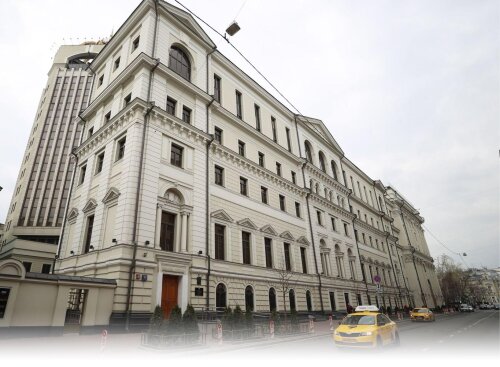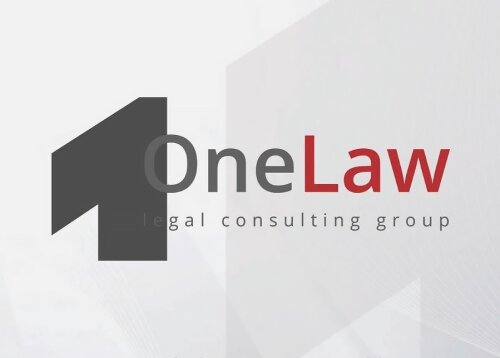Best Bankruptcy & Debt Lawyers in Yekaterinburg
Share your needs with us, get contacted by law firms.
Free. Takes 2 min.
List of the best lawyers in Yekaterinburg, Russia

About Bankruptcy & Debt Law in Yekaterinburg, Russia
Bankruptcy & Debt law in Yekaterinburg, Russia, plays a critical role in handling situations where individuals or businesses cannot meet their financial obligations. The legal framework is designed to provide relief for debtors through either debt restructuring or the liquidation of assets. Understanding these laws is vital for individuals and businesses experiencing financial challenges in Yekaterinburg.
Why You May Need a Lawyer
There are several scenarios where seeking legal assistance in Bankruptcy & Debt is crucial:
- Filing for bankruptcy due to overwhelming debt burdens, to navigate the complex legal procedures.
- Negotiating with creditors to restructure existing debts or to mitigate penalties and interest.
- Defending against lawsuits or collection actions initiated by creditors.
- Understanding the implications of bankruptcy on personal credit, property, and future financial obligations.
- Managing corporate insolvency and ensuring compliance with statutory obligations for businesses.
Local Laws Overview
The Bankruptcy & Debt laws in Yekaterinburg are primarily governed by federal legislation, such as the Federal Law on Insolvency (Bankruptcy) of Russia. Key aspects include:
- Types of Bankruptcy: Personal and corporate bankruptcy processes are catered for, with specific provisions for each.
- Debt Restructuring: Options for restructuring debt to allow continued operation of businesses or manageable personal debt repayment.
- Asset Liquidation: Guidelines for the liquidation of assets to satisfy debts in cases where restructuring is not feasible.
- Debt Settlement: Legal support for negotiating settlements with creditors as an alternative to formal bankruptcy.
- Legal Protections: Certain debtor protections are in place to prevent unjust seizure of essential assets or manipulation by creditors.
Frequently Asked Questions
What is the difference between personal and corporate bankruptcy?
Personal bankruptcy involves the financial insolvency of individuals, whereas corporate bankruptcy deals with businesses unable to pay their debts.
Can all debts be discharged in bankruptcy?
No, certain debts, such as alimony, child support, and certain taxes, usually cannot be discharged in bankruptcy proceedings.
How long does a bankruptcy process take?
The duration varies depending on the complexity of the case, but it generally ranges from several months to a few years.
What happens to my assets during bankruptcy?
Assets may be liquidated to pay creditors, though some essential assets might be exempt from seizure under specific circumstances.
Can I keep my home in bankruptcy?
It's possible through a restructuring plan, but it depends on the level of debt, equity in the home, and local exemptions.
Are there alternatives to filing for bankruptcy?
Yes, alternatives include debt restructuring, negotiation for settlements, and personal financial management solutions.
Will bankruptcy affect my credit score?
Yes, filing for bankruptcy will significantly impact your credit score, making it difficult to secure loans or credit in the future.
What is the role of a bankruptcy trustee?
A trustee is appointed to oversee the bankruptcy process, ensuring fair treatment of creditors and compliance with legal procedures.
Can creditors contact me during bankruptcy?
Once bankruptcy proceedings begin, an automatic stay typically prevents creditors from contacting you regarding debt collection.
Is it possible to file for bankruptcy without a lawyer?
While possible, it's not advisable due to the complexity of bankruptcy laws and the risk of not adequately protecting your interests.
Additional Resources
Individuals seeking assistance with Bankruptcy & Debt in Yekaterinburg can benefit from the following resources:
- The Federal Antimonopoly Service, which handles aspects of creditor practices.
- Legal Aid Clinics that offer pro bono legal services for those unable to afford attorneys.
- Chambers of Commerce, which can provide guidance for businesses facing insolvency.
- Bankruptcy Courts for information on legal proceedings and filings.
Next Steps
If you require legal assistance with Bankruptcy & Debt issues, consider the following steps:
- Consult a Lawyer: Seek initial consultations with local bankruptcy attorneys for advice tailored to your situation.
- Gather Financial Documents: Compile all relevant financial records, statements, and communication with creditors.
- Evaluate Options: Discuss potential solutions, including bankruptcy alternatives, with your legal advisor.
- File the Necessary Paperwork: Ensure all required legal forms and documents are completed and submitted promptly.
- Follow Legal Guidance: Adhere to legal advice and proceedings to ensure the best possible outcome for your financial situation.
Lawzana helps you find the best lawyers and law firms in Yekaterinburg through a curated and pre-screened list of qualified legal professionals. Our platform offers rankings and detailed profiles of attorneys and law firms, allowing you to compare based on practice areas, including Bankruptcy & Debt, experience, and client feedback.
Each profile includes a description of the firm's areas of practice, client reviews, team members and partners, year of establishment, spoken languages, office locations, contact information, social media presence, and any published articles or resources. Most firms on our platform speak English and are experienced in both local and international legal matters.
Get a quote from top-rated law firms in Yekaterinburg, Russia — quickly, securely, and without unnecessary hassle.
Disclaimer:
The information provided on this page is for general informational purposes only and does not constitute legal advice. While we strive to ensure the accuracy and relevance of the content, legal information may change over time, and interpretations of the law can vary. You should always consult with a qualified legal professional for advice specific to your situation.
We disclaim all liability for actions taken or not taken based on the content of this page. If you believe any information is incorrect or outdated, please contact us, and we will review and update it where appropriate.
Browse bankruptcy & debt law firms by service in Yekaterinburg, Russia
Yekaterinburg, Russia Attorneys in related practice areas.













